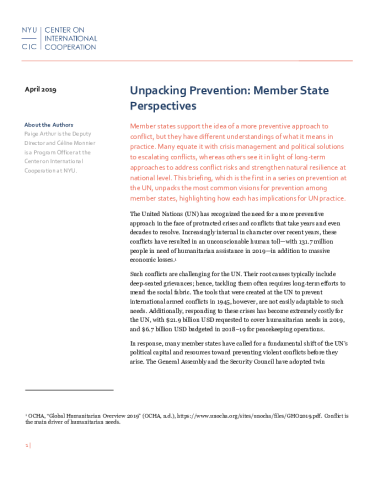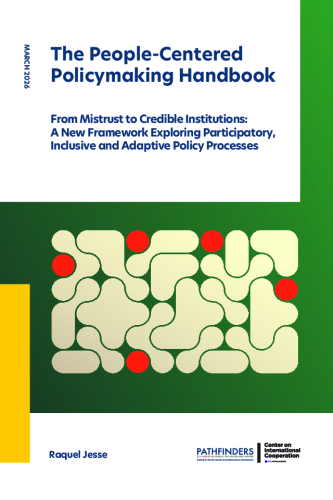
The United Nations (UN) has recognized the need for a more preventive approach in the face of protracted crises and conflicts that take years and even decades to resolve. Increasingly internal in character, such conflicts are challenging for the UN.
In response, many member states have called for a fundamental shift of the UN’s political capital and resources toward preventing violent conflicts before they arise. The General Assembly and the Security Council have adopted twin resolutions to encourage integrated, cross-pillar efforts to sustain peace, including through prevention. The current secretary-general, António Guterres, has made prevention a top priority. Evidence supports the contention that in addition to averting massive human suffering, prevention is also cost-effective.
This policy brief unpacks the different understandings of prevention operative among member states, based on discussions with a regionally diverse group of 19 countries. It explores how member states understand the prevention agenda at the UN and highlights some areas of overlapping consensus that would support operationalization of the prevention agenda. A key finding is that member states are more accepting of prevention if it is seen to apply to all countries, not just conflict-affected ones.
Read the full paper Unpacking Prevention: Member State Perspectives.pdf
More in the prevention series:
- Nationally Led Prevention: Practical Examples of Approaches to Risk and Resilience (June 25, 2019)
- The Prevention Agenda: Mapping Out Member States’ Concerns (July 2, 2019)
- Creating the Political Space for Prevention: How ECOWAS Supports Nationally Led Strategies (August 29, 2019)
- Breaking the Siloes: Pragmatic National Approaches to Prevention (August 30, 2019)
- Development and Prevention: National Examples of Linkages (August 31, 2019)



